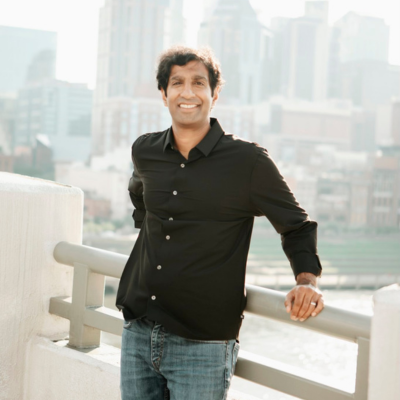1. What do you do?
I am head of the Stokes Library at Princeton University. Stokes is the branch library for public policy, international affairs, sociology, and population research. My job entails a mix of administration, consultation with students and faculty, and conducting my own research and publication.
2. What's the coolest part of your job?
One of the more challenging aspects of the undergraduate Princeton policy curriculum involves writing a senior thesis. As part of this research-intensive process, the librarians at Stokes spend a lot of time working individually with students on crafting their research questions, developing a methodology, finding data, and writing the thesis.
Not unlike doctoral dissertations, the topics students focus on are emerging. So, as a librarian and a policy scholar, it is exciting to support their efforts to find the best available evidence on these emerging policy questions.
3. Why are you passionate about it?
As a librarian, I want to ensure that current and future generations of policy scholars can access the most accurate and relevant evidence. This role allows me to weave together many of my professional passions (information science, policy theory, data science) in service of advancing public policy research and teaching.
4. Which skills from your IAC degree have helped you be successful in this career?
Every day, I am grateful for my experiences as a graduate student in the School of Public Policy. The faculty are simultaneously outstanding teachers and creative researchers.
I would never have admitted it at the time, but I am also appreciative of the intensity and rigor of the doctoral program. I can say first-hand that Georgia Tech graduates have a positive reputation in academia as competent and dependable. This is due to the world-class training IAC faculty provides and the breadth of resources available at the Institute.
5. What's your #1 tip for students and alumni interested in your field?
Over the past decade, I have noticed a steady decline in the ability to focus. We are inundated with information signals and data of varying quality. Rather than rely upon our intrinsic capacities for focus and evaluation, the current information and organizational environments incentivize using tools and technology to assess information quality and relevance.
Those tools can certainly be helpful, but I am concerned that too many of us relinquish analysis and decision-making about salient information to "black box" systems. This creates a situation whereby, over time, we lose our intuitive ability to evaluate information and synthesize creative new knowledge.
In the policy sciences, it is crucial that individuals and teams are able to make informed decisions based on the best available evidence. But reading and applying that evidence demands our full attention. Cultivating an ability to focus mindfully on one thing at a time is a critical skill that is necessary but not explicitly taught.
Meet more featured alumni in the School of Public Policy!

